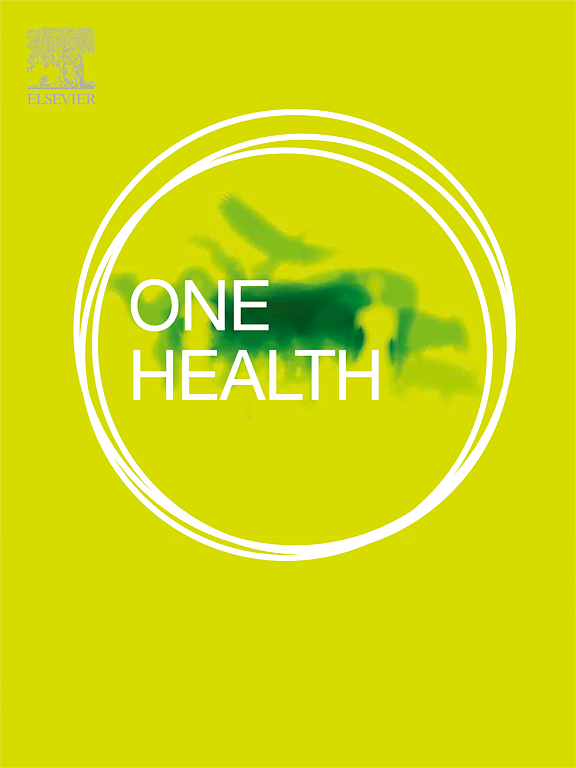Learning from over ten years of implementing the One Health approach in the Democratic Republic of Congo: A qualitative study
IF 4.1
2区 医学
Q1 INFECTIOUS DISEASES
引用次数: 0
Abstract
Background
The Democratic Republic of Congo (DRC) has faced emerging infectious diseases such as Ebola, Mpox and Yellow fever, and antimicrobial resistance is a growing concern. To address these issues, in 2011 the country embarked on implementing the One Health (OH) approach at the national and provincial levels. This study investigates OH institutionalization and implementation in the DRC, describes the process of OH decentralization, and identifies the opportunities and challenges of sustaining these efforts.
Methods
We conducted a qualitative study based on literature, document review and key informant interviews. The literature search targeted PubMed, Google Scholar and the document depository of the national One Health platform (NOHP). Key informant identified at the national level included ministry representatives, OH platform members and donors supporting OH implementation. These interviews were conducted in-person and online, recorded, transcribed, and imported into Dedoose software (version 9.2.006) for coding. Content analysis was performed to identify activities, processes, and achievements during the implementation of OH in DRC.
Findings
Results of the literature and document review (n = 72) and analysis of stakeholder interviews (n = 24) indicate that a national OH platform, initiated in 2011, is hosted at the Ministry of Higher Education and coordinates other sectors. It comprises governmental departments, academic institutions, and civil society organizations working at the human, animal, and environment sectors. The governance structure includes a national coordinator, a permanent secretariat, technical working groups, and subnational entities at provincial and territorial levels. Following the establishment of the national OH platform, a structured process foresees to facilitate OH implementation at the provincial and territorial levels. Achievements up to today include the development of training programs, establishment of OH committees in some provinces, assessments of workforce needs, formulation of a national strategy, development of governance manuals, and support to the Mpox response coordination.
Nevertheless, OH implementation in the DRC faces challenges, including leadership tensions at the national level, inadequate domestic funding, limited training and capacity building for professionals, and insufficient infrastructure for data collection and sharing. Strengthening leadership and coordination, advocating for domestic resource mobilization, and strengthening infrastructure for data collection and sharing while ensuring equity across sectors is essential for advancing the OH agenda and ensuring its efficacy.
从刚果民主共和国十多年来实施 "一个保健 "方法中学习:定性研究
背景刚果民主共和国(DRC)面临着埃博拉、麻风病和黄热病等新出现的传染病,抗菌药耐药性也日益令人担忧。为解决这些问题,该国于 2011 年开始在国家和省一级实施 "一个健康"(OH)方法。本研究调查了刚果(金)"一个健康 "的制度化和实施情况,描述了 "一个健康 "权力下放的过程,并指出了持续开展这些工作所面临的机遇和挑战。文献检索以 PubMed、Google Scholar 和国家 "一个健康 "平台(NOHP)的文件库为目标。在国家层面确定的关键信息提供者包括部委代表、"一个健康 "平台成员和支持 "一个健康 "平台实施的捐助者。这些访谈以面谈和在线方式进行,并进行录音、转录和导入 Dedoose 软件(9.2.006 版)进行编码。文献和文件审查(n = 72)以及利益相关者访谈分析(n = 24)的结果表明,2011 年启动的国家职业卫生平台由高等教育部主持,并协调其他部门。该平台由政府部门、学术机构以及在人类、动物和环境领域开展工作的民间社会组织组成。管理结构包括一名国家协调员、一个常设秘书处、技术工作组以及省和地区一级的次国家实体。在建立国家 OH 平台之后,预计将有一个结构化进程来促进省和地区一级的 OH 实施。尽管如此,刚果(金)的职业卫生实施工作仍面临着各种挑战,包括国家层面的领导关系紧张、国内资金不足、专业人员培训和能力建设有限、数据收集和共享的基础设施不足等。加强领导和协调,倡导调动国内资源,加强数据收集和共享的基础设施,同时确保各部门间的公平,对于推进职业卫生议程并确保其有效性至关重要。
本文章由计算机程序翻译,如有差异,请以英文原文为准。
求助全文
约1分钟内获得全文
求助全文
来源期刊

One Health
Medicine-Infectious Diseases
CiteScore
8.10
自引率
4.00%
发文量
95
审稿时长
18 weeks
期刊介绍:
One Health - a Gold Open Access journal.
The mission of One Health is to provide a platform for rapid communication of high quality scientific knowledge on inter- and intra-species pathogen transmission, bringing together leading experts in virology, bacteriology, parasitology, mycology, vectors and vector-borne diseases, tropical health, veterinary sciences, pathology, immunology, food safety, mathematical modelling, epidemiology, public health research and emergency preparedness. As a Gold Open Access journal, a fee is payable on acceptance of the paper. Please see the Guide for Authors for more information.
Submissions to the following categories are welcome:
Virology,
Bacteriology,
Parasitology,
Mycology,
Vectors and vector-borne diseases,
Co-infections and co-morbidities,
Disease spatial surveillance,
Modelling,
Tropical Health,
Discovery,
Ecosystem Health,
Public Health.
 求助内容:
求助内容: 应助结果提醒方式:
应助结果提醒方式:


